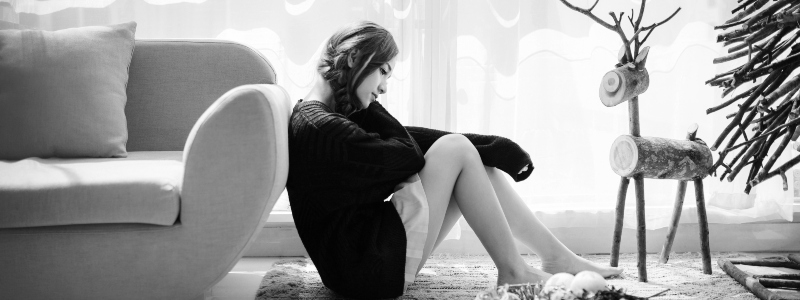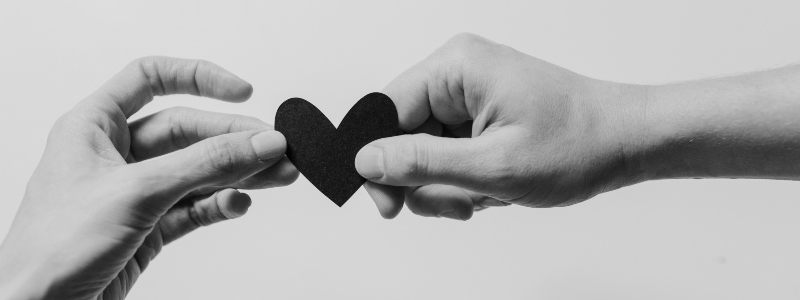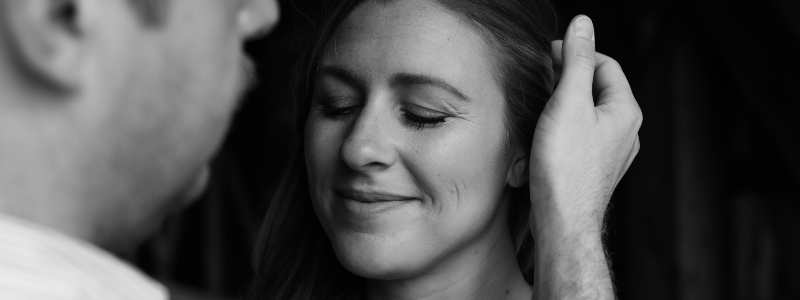Transference
Love is the unconscious expression of longings, desires and hopes onto a person who ‘fits’ because of who they are and who you are to them. This mutuality of hoped for experiences, combined with sexual attraction, results in a powerful combination of emotions and physical desire which we call falling in love. In simple terms, transference is a repetition of old feelings, desires and fantasies onto someone in our present life. Therefore, love will always have a transferential element to it.
We fall in love not only with the other person but also with what they mirror back to us about ourselves. Lovers mimic many of the early experiences of mother and baby, such as the loving gaze, facial expressions, sounds and touch, as we once again experience the bond in which we felt loved and safe. If we didn’t, then the longing is for the experience we never had.
Lovers merge as they become highly attuned to one another in a natural process of forming an attachment bond. The other becomes the most important person in our world and we become completely immersed and preoccupied with them. This goes back to how humans live, survive and procreate, and therefore the process of forming a bond becomes the most powerful drive. This is why love can be so intoxicating, all-consuming and painful at the same time. The early stages of falling in love are fragile. Both parties are open, vulnerable and full of hope. But because of such fragility, there is a parallel experience of being out of control and deep uncertainty. Will this feeling last? Will they keep loving me, being attracted to me? Am I a loveable person? Can I hold their interest? Etc. These are questions about potential loss, and fear of disappointment and hurt.
Falling in love and loving
The initial stages of a relationship often start with an idealisation of the other, followed by gradually getting to know the other for who they really are, rather than the idealised version. This process of getting to know each other takes a long time and is more realistic.
Partners will either stay together or separate based on their compatibility, life circumstances and desire to continue the relationship.
Over time, love grows, changes or dies, depending on many factors at play in relationships. How we were loved and taught to love in childhood will have a major impact in our adult relationships. And whilst upbringing and attachment style matter a great deal, how we grow and develop in adulthood carries a lot of weight in how we do relationships. For instance, someone may come from a family which was dysfunctional and decide that they do not want to repeat this dysfunctionality in their lives. They are determined to work on the relationship with their partner and their children, as opposed to sleepwalking into repeating their family history.
Loving is intentional. The decision to stay in a relationship needs to be made again and again throughout its life cycle.
Loving more than one person
Fortunately, or unfortunately, love does not constrain itself to our social rules of marriage, monogamy and ideas of romance. It is possible to fall in love and be attracted to more than one person or multiple people, either in succession or at the same time. The capacity for multiple types of love, or loving more than one person at once, can also be linked to the family environment and upbringing. Some children grow up with multiple attachment bonds, whilst others grow up with one or two primary carers. Parents, extended family and siblings all influence our capacity to form bonds and love. The beliefs and values we grow up with also impact our view of multiple love bonds and the extent to which we will allow ourselves to love more than one person at once.
Love in long-term relationships
Helping love to continue and flourish in long-term relationships can be a challenge. It requires ongoing effort and intention. Couples need to cultivate positive habits that nurture the bond they have. Everyone does this differently and some unfortunately not at all. As couples drift apart and become habitual in their way of relating, the relationship can die a slow death.
Sex and non-monogamy
Sex and sexuality can be used as expressions of our aliveness and our relationship with self and other. The ability to feel pleasure and desire says a lot about our ability to engage with life and our capacity to feel alive. Partners may differ in their sexual preferences, levels of desire (for one another and other people), and capacity for pleasure.
As partners levels of desire and preferences change over time, they must navigate these changes within the relationship and find new and creative ways of living a sexually and emotionally satisfying life. Some couples choose to open their relationship and experiment either alone or together with other people. Although affairs continue to be treated as taboo, humans have always found ways of meeting their sexual and emotional needs
through illicit or open extramarital relationships. There are many and complex reasons for engaging in sex outside committed relationships. This can range from a step towards leaving an unhappy marriage/partnership or wanting to inject life into one which has become stagnant.
Falling in love, being in love and learning to love
Whichever of the three phases you are experiencing or wanting to experience right now, couples or individual psychotherapy can be a good place to explore these feelings. Some of the common reasons people seek relationship therapy are:
- Beginning a new relationship and not wanting to repeat old patterns.
- To explore early family relationships which impact present ones.
- Marriage counselling or couples therapy to help couples who are struggling to communicate and/or keep their relationship alive.
- To discuss non-monogamy and explore differences in sexual preferences and levels of desire.
- To discuss life transitions and their impact on relating.
- To learn to love, stay in love or even fall in love.
Sam Jahara is a UKCP Registered Psychotherapist, Clinical Superviser, Leadership Coach and BHP Co-founder. She works with individuals and couples in Lewes and Hove.
Further reading by Sam Jahara –
Radical self care as an antidote to overwhelm
The adult survivor of neglect and abuse – lifelong considerations
There are no shortcuts to growth











